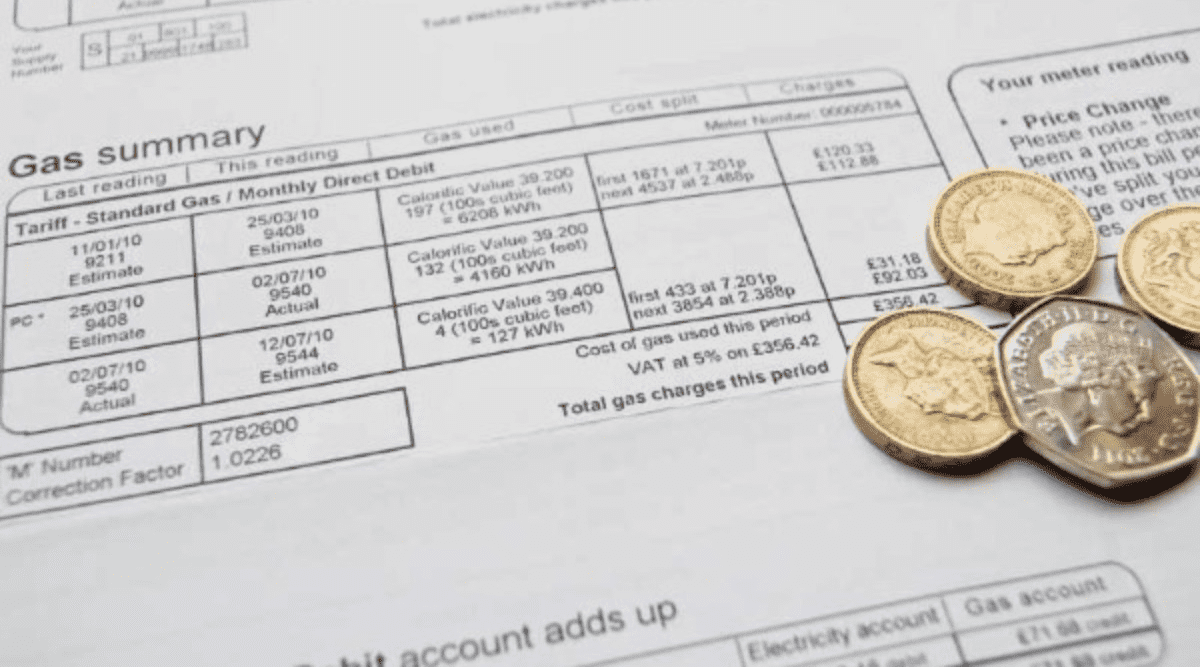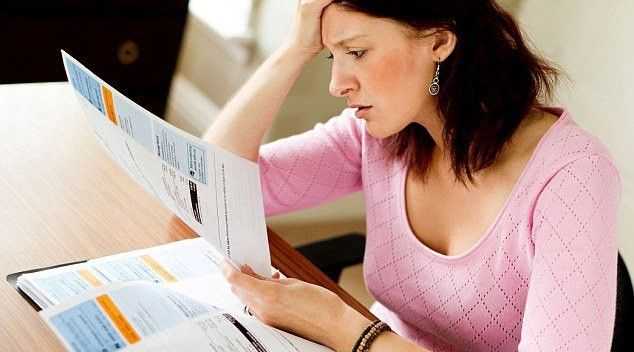Solar Together Essex - highest take up ever!
Energy Saving
Solar Together Essex - highest take up ever!
Solar Together Essex 2022 has been an overwhelming success – the scheme received more than three times the number of people expected to register their interest. And now more than 1,000 people have accepted their offer for a solar panel system and over 90 are retrofitting batteries to their existing solar systems. Due to this increase in demand, the campaign has had to close the decision period earlier as the winning installer reached their capacity for the number of installations possible. As of 3rd May, registrants are no longer able to accept their personal recommendations.
Essex customers will benefit from an average of 36% discount on market prices for solar systems. The chosen supplier will start to contact customers from June onwards to book a site survey. All installations are planned to be completed by the end of November 2022. The Solar Together Essex 2021 scheme resulted in 514 installations and will avoid 452 tonnes of carbon in the first year.
Dig a little deeper, and you could save even more on your energy bills
Energy Saving
Go paperless
Have you been paying your utility bills with cash or cheque? If you have, you could save yourself money by simply switching your payment method. Research has shown that you could save as much as £70 on gas and £50 on electric by changing from prepayment or standard credit to a direct debit. These figures are on an average household, so your saving could be smaller or more than this.
Managing your payments online could also be another way of saving money on your bills. So it’s always best to ensure that you’re using a method of direct debit or online payments to get the best savings.
Many companies will still charge for paper bills, so check with your providers because a simple switch to email bills could save you a considerable amount each year.
Wrap up your tank
If you live in an older house and have an uninsulated or poorly insulated hot-water tank, you are wasting money every time you switch on your hot-water system. Wrapping it up in a British Standard cylinder jacket of at least 75mm thickness can reduce heat loss by 70%. Jackets are available for as little as £10. Find out more: Water-saving products — a list of tools to help you save water 48.
Insulate
Does the insulation on your home need to be replaced?
Ensuring your home retains the heat as best as possible will mean you need to spend less on warming it up.
The Energy Saving Trust estimate that loft insulation can help you save £175 off your bill each year and cavity wall insulation can save an additional £135.
Double glaze your windows
Replacing all the windows in your home can certainly be a costly expense, but it’s not only great for reducing your heating bills but also helps to reduce the amount of noise that comes into your home too.
If you don’t have the budget for double glazing, there are plastic linings you can buy for windows that work to keep the heat in too.
Get a new boiler
Upgrading to an A-rated condensing boiler could save as much as £320 a year.
Look into grants and benefits to help you save on home heat and insulation
Try the Energy Savings Trust, which can advise on benefits, grants for home insulation, reduced tariffs and special payment options.
Simple Energy Advice on 0800 444 202 (for England and Wales)
Look into government energy efficiency schemes
Government initiatives that may be able to help pay for home improvements:
In England, Wales and Scotland, the Energy Companies Obligation (ECO) and the Green Deal.
In Wales, Nest.
In Scotland, the Home Energy Efficiency Programme Scotland (HEEPS).
Telephone 0300 123 1234, for England and Wales, and 0808 8082282, for Scotland.
Buy more energy-efficient appliances
We’re not suggesting you throw out perfectly-working appliances in the home, but when it’s time to get an upgrade, make sure you’re choosing the best energy-efficient rating. Electric ovens, dishwashers and fridge freezers can all help save you money in the long run.
Fill in your cracks
This can take a bit of effort on your part, but it certainly makes a difference when it comes to ensuring your home is retaining the heat you’re paying for.
At night, keep the blinds and curtains drawn and use draught-blockers on certain doors where you want the heat retained.
Check windows and main doors to see if they’re particularly draughty and could need some new padding on the rims to make sure extra heat isn’t escaping.
Switch to a water meter
If you’re currently paying a set rate for your water, it might be worth switching to a water meter where you only pay for the water you use. This can be the best option for those who aren’t using large quantities of water with baths every day.
Read your meter regularly
An estimated bill could result in overpayments. You are best-advised to provide the supplier with an accurate meter reading at least every three months. You can then let them know how much you’re using by calling or submitting your meter reading online.
It’s more than just numbers… how experiencing money problems can affect… well just about everything.
Energy Saving
It’s natural to worry about money, but prolonged financial problems, especially debt, can take a toll on your mental health. In turn, this can lead to absenteeism from work and issues with personal relationships.
Worse, according to The Money and Mental Health Policy Institute, every year, over 100,000 people in England attempt to take their own life whilst struggling with problem debt.
Once someone is experiencing a mental health problem, it becomes even more challenging to manage their money effectively. Research by Citizens Advice reveals that people with mental health issues pay over the odds on essential services like energy or banking by up to £1550 each year. People with mental health problems may also suffer from anxiety and not feel confident reaching out for help. It’s also not uncommon for people to overspend to give a brief “high” when feeling low. Obviously, this will only make things worse in the long term.
These understandable symptoms and behaviours create a vicious circle that can be hard to break free of.
If you are continually feeling low and it starts to affect your day-to-day life, you should seek help from your GP. But as well as this, some small steps can be taken to improve how you feel about your finances. And if things have really got out of control, help is available if you need it.
Understand your budget
Having a clear understanding of the money you have coming in and going out can help you feel in control of your finances. Putting together a budget doesn’t need to be complicated. Just sitting down and noting down the money you have coming in and where you spend it will give you an idea of your financial circumstances. Search for “work out your budget “ on our website, www.citizensadvice.org.uk, if you’d prefer to do this online, as we have a budgeting tool that can help.
Develop a regular savings habit
A savings pot to fall back on when unexpected bills crop up can provide you with a greater sense of financial security. Once you have a budget in place, you should have a better idea of how much you can afford to save regularly. You don’t have to save much to start. Even a few pounds each week can make a real difference.
Keep in touch with the who you owe money to
Financial services firms and utility companies are improving how they identify and support customers in vulnerable situations. So, if you feel up to it, actively contact the people you owe money to and tell them you need more support. Ask if they have a specialist team or what they can do to help customers in your circumstances.
Get debt advice
Whilst your first port of call should always be to talk to the people you owe money to, financial problems can get to the point where you need professional advice. Citizens Advice and other debt advice providers, such as Stepchange, can now use the new “Breathing Space” initiative, which came into effect in May this year. This scheme gives temporary protection from creditors whilst people in debt take advice and receive support to sort out their finances.
For the thousands of people in debt who turn to help from Citizens Advice every year, it will be a vital first step to feeling better about their finances and in themselves.
Virtual Home Visits to Help Lower Energy Bills
Warm Homes
Citizens Advice in Essex is now providing "virtual home visits" to support people struggling with their energy bills.
During the virtual home visit, which takes around 20 – 30 minutes, specialist energy advisers are able to walk through with the client some of the main ways in which they can reduce energy consumption by touring the person's home with them via smartphone or tablet.
"The average home can save £375 through the cumulative effect of a range of small changes – some of which are easy to explain to someone in an office or over the phone – others, though, might require a demonstration. Making effective use of your boiler's heating controls is one example. This is one element of the intensive support we have available for the people who are struggling the most." - Martin Lord, Director Citizens Advice Essex
Citizens Advice Essex runs several projects to help households in “fuel poverty” – a term meaning households who cannot afford heat their home properly.
With so many energy companies going bust, the tactic of switching supplier to get a better deal is no longer possible. Instead, energy advisors are focusing on ways to save energy by changing behaviour, applying for grants to improve housing infrastructure, and maximising people’s income.
If you are struggling with your energy bills, you can contact the Citizens Advice services' various fuel poverty alleviation support projects through its "Warm Homes Essex" service on www.warmhomesessex.org.uk or by calling 0300 3033 789. Warm Homes Essex is a joint initiative between Citizens Advice and Essex County Council.
Why high-quality, holistic energy advice, isn’t just for grown ups.
Warm Homes
Living in a cold home has a profound impact on children.
While recent policies and initiatives have rightly focused attention on the needs of older people, or those with disabilities, targeting advice services on people in fuel poverty who have or look after children, especially the under-fives, can bring real benefits, especially given the long-term impact that a cold home can have on a child’s long term prospects.
It’s known that cold, damp conditions exacerbate respiratory conditions such as asthma and also impact upon educational outcomes. Younger families especially, are more likely to be living in rented accommodation. Social landlords should, but often don’t maintain properties to a good standard. In the private sector, tenants often feel reluctant to pursue matters relating to their home’s poor standard of repair.
For these reasons, Citizens Advice Essex, the consortium body for the Citizens Advice service across Essex, Southend and Thurrock, provides an intensive energy advice service aimed at people with dependent children.
Even if, in the short or even medium-term, it’s going to be hard to do something about the energy efficiency of our client’s home, we often find that addressing the other root causes of fuel poverty; low or unstable incomes, unmanageable personal debt, or under claimed benefits, can have a more immediate impact on the household and that’s why our capabilities in these areas are front and centre of our approach.
We’re grateful to the Energy Redress Fund for funding our work in this area.
If you, or a family you know, needs our help in this area, call our dedicated Warm Homes Helpline on 0300 3033 789.
A quick start to saving money on your energy bills
Energy Saving
Bills are rising and if it all seemed like too much bother before, now is the time to start saving.
Ten simple ways to lower your energy bills
You can save money on your energy bills without spending money on renovations to your home. If you follow each one of these tips, you could save up to £211 a year.
That’s equal to over two months of free energy for the average household.
Wash your clothes at 30 degrees
Washing your clothes at 30 degrees can save up to £7 a year on your energy bills.
Dry your clothes on a washing line or a clothes horse
If the weather’s good and you have space, dry your clothes on a washing line or a clothes horse, to save £30 a year.
Only boil the amount of water you need
You can save up to £6 a year by only boiling the water you need when using the kettle.
Turn the thermostat down a notch.
Turning your thermostat down by one degree can save you £80 a year.
Turn your appliances off standby.
Turn your appliances off by the switch to save £35 a year.
Turn off the lights
You could save £13 off your annual energy bill if you switch off the lights when you leave the room.
Shower for a minute less
Cut your shower time by one minute and save £7 a year on your energy bills.
Wash up in a bowl
Don’t keep the tap running. Instead, use a bowl of water to do your washing up and save £25 a year.
Fill up your washing machine when doing a wash.
If you can, wait until you have enough dirty clothes before putting in a wash. You could save £5 on your yearly energy bills.
Swap your bath time for a 5-minute shower
And finally, you’ll save £10 on your energy bills for every two people that choose to have a 5-minute shower instead of a bath.
Source: Energy Saving Trust
Climate advice packs for Residents, Schools and Businesses
Energy Saving
Reducing our carbon footprint is a challenge for us all - and it can often feel overwhelming. We have developed three Climate Action Advice Packs (for Residents, Businesses and Schools) offering a variety of cost-effective, achievable and advantageous solutions and ideas, relevant to different audiences.
I am a resident. - a range of key advice, tips and information to help us all cut our carbon, to reduce our impact on the planet and help us and the next generation have a better future.
I am a school- a collection of key guidance, tips and information to help your school cut your carbon, to reduce your impact on the environment and to help us improve long-term sustainability across Essex.
I am a business- specifically developed to help small and medium-sized businesses across Essex access the most relevant information in relation to climate change and sustainability, with tips and ideas throughout to help your business to thrive whilst keeping its impact on the environment low.
Getting to net zero will be a collective effort from residents, businesses and organisations throughout the county. These three advice packs will help us all along the way!
Energy Advice for Households
Energy Saving
We know the Energy Price Cap rise is extremely worrying for many people.
If you are struggling with energy costs, there's practical advice and information on what you can do and support services in Ofgem's Help With Bills guide.
The Government has also announced an Energy Bills Support Scheme to help people deal with rising bills.
Ofgem have put together some really useful information in collaboration with Citizens Advice and other key partners to help support and signpost residents to the support available from the government, energy suppliers directly and charities & voluntary sector organisations locally - see the above Help with Bills Guide for all of these details. More details and support can be found here
Don't forget to check out the rest of this website to see the Essex specific support and advice available as well as some quick and easy measures to reduce your bills!
Ofgem is the Office of Gas and Electricity Markets (the energy regulator for Great Britain). Their role is to protect consumers by working to deliver a greener, fairer energy system.
ECO4 & GBIS flex now open!
Warm Homes
Essex County Council has launched two schemes to help low-income households and vulnerable residents reduce energy costs and emissions.
Residents across Essex can apply to have solar panels, heat pumps and more energy-efficient measures installed for little to no cost.
Energy Company Obligation (ECO4) Flex and the Great British Insulation Scheme (GBIS) Flex are being offered by Essex County Council through Better Housing, Better Health to help improve energy inefficient properties.
Both schemes are available to homeowners and tenants, with landlord permission, who have a household income below £31,000 and Energy Performance Certificate (EPC) between D and G. Residents with a property tax band between A and D can also apply for the GBIS.
Both schemes are also available to residents with a qualifying benefit or health condition. No income limit is applied to those with a qualifying health condition.
Eligible residents could save energy costs and improve their EPC rating with insulation, boiler replacements, low-energy lighting, air source heat pumps and solar panels.
Councillor Schwier, Climate Czar and Cabinet Member for Environment, Waste Reduction and Recycling at Essex County Council, said:
A low EPC rating can cost hundreds of pounds per year in energy bills, reduce the value of a property and ultimately harm the environment. However, improving it can come with an upfront cost many people can’t afford.
ECO4 Flex and the Great British Insulation Scheme Flex will help ensure low-income households and vulnerable residents are able to access valuable energy-saving measures. I strongly encourage Essex residents to check their eligibility here.”
Energy Bills are increasing. Here’s why and what we are doing to help.
Energy Saving
Ofgem, the UK’s Energy Markets regulator, recently announced an increase in the “price cap” for default tariffs. The cap was initially introduced as a means by which customers who don’t shop around for a better deal pay no more than the regulator considers to be “fair”. Similar capping arrangements apply to customers using pre-payment meters, and here too, prices are also expected to rise.
The announcement came, due to what the regulator describes as “unprecedented” rates of increase in fossil fuel prices, ultimately feeding into the cost we pay as customers for our electricity and gas.
There are a couple of crucial points to make about the hike. Firstly, the “price cap” is, and never was, an absolute limit on your bill. Instead, it’s a limit on the unit price you pay.
Secondly, households on low incomes and with “hard to heat” homes will be worst affected. These are households that are more likely to be in “fuel poverty”. Analysis by campaign group The End Fuel Poverty Coalition suggests the number of families in fuel poverty is set to rise by almost 400,000 as a result.
“Fuel poverty” is a term that has been subject to some debate. Definitions have changed over the years leading to different government responses. In practical terms, fuel poverty is easy to spot when you get to know someone’s finances. For us, at Citizens Advice, it means speaking to families who face the impossible choice of “heating or eating” or needing to “self-ration” energy use, so their home is not kept adequately warm. This can have a significant impact on health, for example, causing or exacerbating respiratory conditions. For pre-payment meter customers, an increase in the price they pay will also lead, we think, to a rise in the number of households “self-disconnecting” from their supply. Earlier this year, we were pleased to distribute around £130,000 worth of emergency fuel vouchers through funding from Ofgem available to us throughout the pandemic for people in just this situation. However, that funding has now ended.
So, how can we help?
For some people, now will be the time, perhaps having held off from doing so for years, to take action on their bill by switching tariffs or suppliers. We provide our own energy comparison website, and we can talk you through the options even if you don’t have access to the internet.
Locally, we have a team of 14 specialists, funded by the Energy Redress Scheme and National Grid’s Affordable Warmth programme. They work intensively with individuals and families, targeting their work at those in the greatest need. The team helps through income maximization, by helping with existing fuel debt and by giving practical advice about reducing energy consumption in the home. We also work closely with both borough and districts and The County Council, supporting their work in deploying grants that can help improve energy efficiency in the home.
We also work as the energy lead for the region and are funded to support other local Citizens Advice to improve their work to address fuel poverty and cascade awareness training to other charities and organizations working with the fuel poor.
By working this way, and with our partners; by tackling some of the root causes of fuel poverty on an individual level, we can help improve our client’s resilience, whatever happens to fuel prices in the future.
For Citizens Advice support in helping find a cheaper deal, go to www.energycompare.citizensadvice.org.uk or call 0808 223 1133
If you are struggling to afford your energy bills, call the Citizens Advice Essex specialist Warm Homes team on 0300 3033 789










